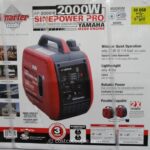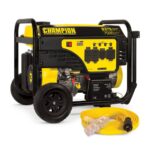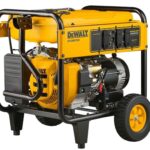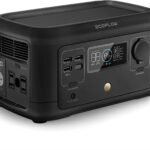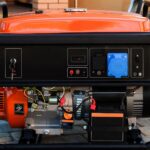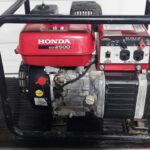When a power outage occurs, having a reliable, portable generator can make all the difference. With so many options on the market, it can be difficult to choose the right one for your needs. This article will provide reviews, guides, and how-tos to help you pick the best portable generator for your power outage.
Types of Portable Generators
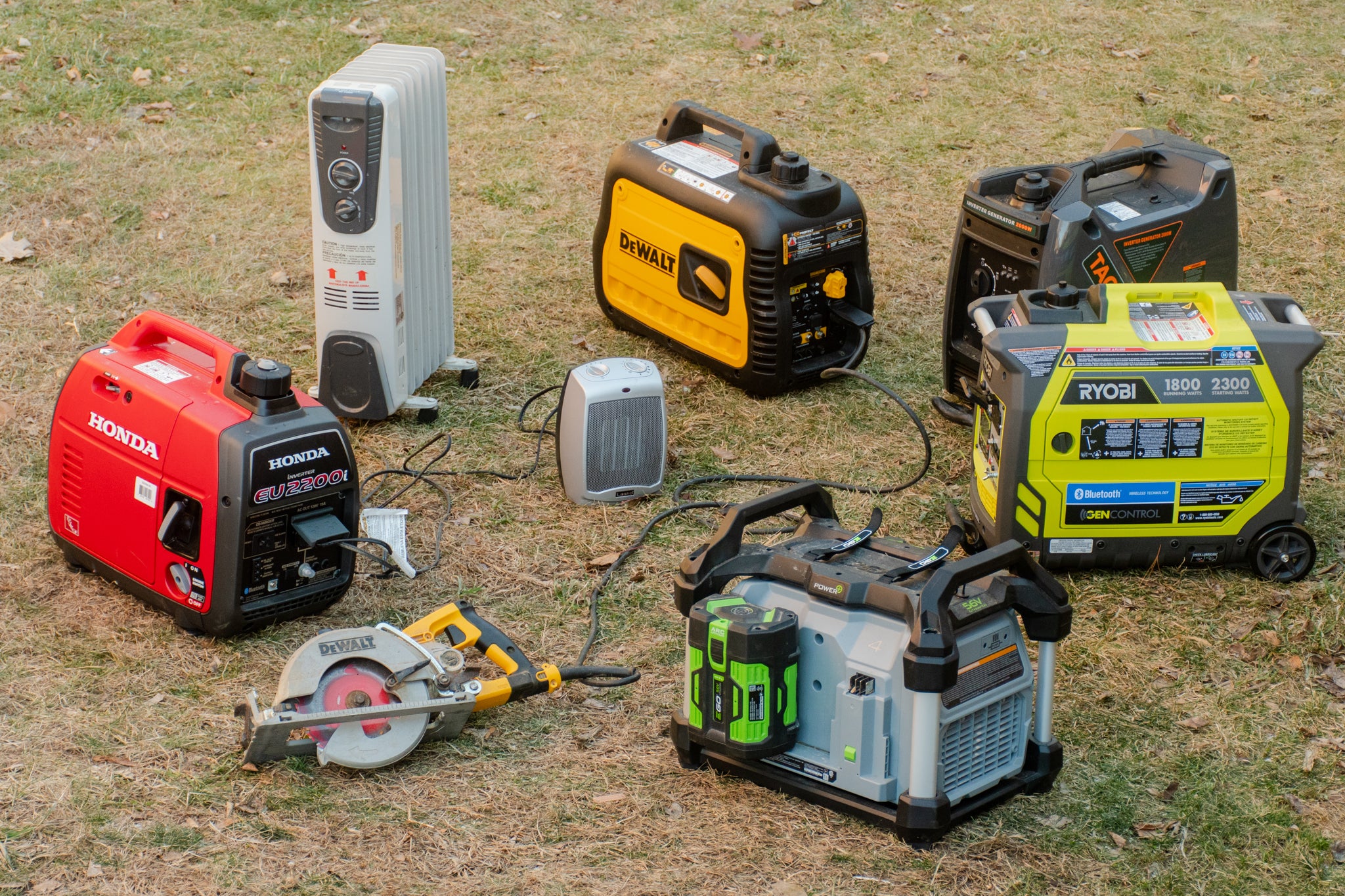
Inverter Generators
Inverter generators are the most popular type of portable generator. They are lightweight and relatively quiet, making them ideal for camping trips and emergency back-up power. Inverter generators are designed to produce clean power, making them safe to use with sensitive electronics like phones, computers, and TVs.
Dual Fuel Generators
Dual fuel generators are a great choice for those who need a reliable source of power during a power outage. These generators can run on either gasoline or propane, giving you the flexibility to choose the fuel source that is most convenient. They are also relatively quiet and can be used for a variety of purposes, from camping trips to emergency back-up power.
Standby Generators
Standby generators are the most powerful type of portable generator and are designed for extended use. They are typically used for large events or to provide emergency back-up power during a prolonged power outage. Standby generators are more expensive than other types of portable generators, but they offer more power and reliability.
Factors to Consider When Choosing a Portable Generator
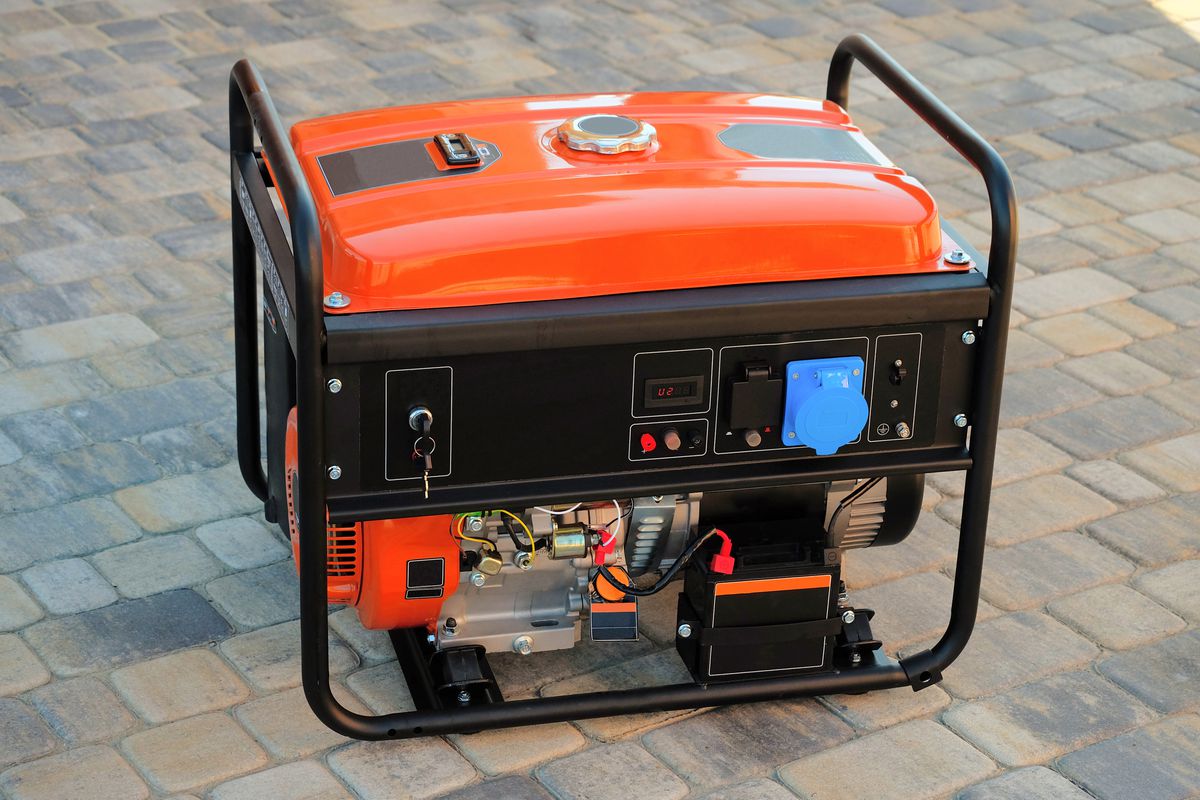
1. Fuel Type
When selecting a portable generator, it is important to consider the type of fuel required. Generators can be powered by gasoline, diesel, or propane, with each having its own advantages and disadvantages. Gasoline is the most common fuel type and is generally the most affordable, but it can be hard to find in emergencies. Diesel is reliable and can be stored for longer periods of time, but it is more expensive. Propane is also reliable and can be stored for long periods of time, but it is more expensive than gasoline.
2. Power Output
Power output is another important factor to consider when choosing a portable generator. Generators can range from small units that provide a few hundred watts of power to larger units that provide thousands of watts. When selecting a generator, it is important to consider the power needs of your home or business.
3. Portability
Portability is an important factor to consider when selecting a portable generator. Generators can range from small, lightweight units that can be easily carried, to large, heavy units that require a trailer or truck to transport. Depending on your needs, it is important to select a generator that is easy to transport and maneuver.
4. Noise Level
Noise level is also an important factor to consider when choosing a portable generator. Generators with larger engines tend to be louder than those with smaller engines, so it is important to select a generator with a noise level that is comfortable for you and your neighbors.
Best Portable Generators for Power Outages
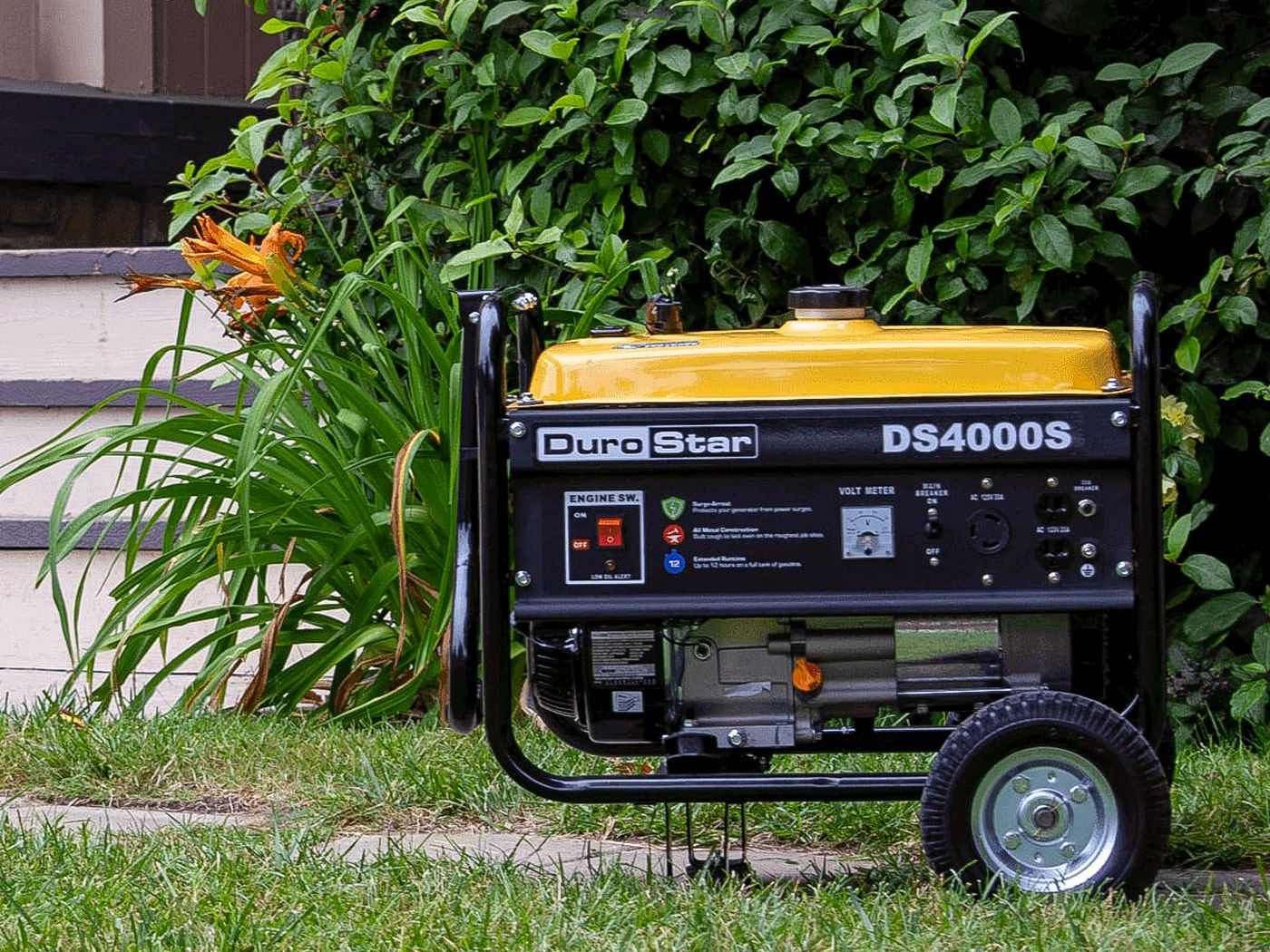
When the power goes out, having a reliable and efficient source of backup power can be invaluable. Portable generators are a great way to keep the lights on, keep your food cold, and keep your family comfortable during an outage.
When it comes to selecting a generator that is best for power outages, there are several factors to consider. You will want to look for a generator with a high wattage output, one that is fuel-efficient, and one that is reliable. You will also want to consider the noise level, size, and weight of the generator.
Below, we have outlined the best portable generators for power outages based on these factors.
| Generator | Wattage Output | Fuel Efficiency | Noise Level | Size/Weight |
|---|---|---|---|---|
| Honda EU2200i | 2,200 watts | Very efficient | Super quiet | Lightweight/Compact |
| Westinghouse WGen7500 | 7,500 watts | Highly efficient | Fairly quiet | Heavy/Large |
| Generac GP2200i | 2,200 watts | Very efficient | Fairly quiet | Lightweight/Compact |
| Champion 3100-Watt RV Ready | 3,100 watts | Highly efficient | Fairly quiet | Lightweight/Compact |
The Honda EU2200i is one of the best portable generators for power outages. It is highly efficient, extremely quiet, and lightweight, making it ideal for those looking for a reliable source of backup power. It has a maximum wattage output of 2,200 watts, making it ideal for powering basic household appliances and electronics.
The Westinghouse WGen7500 is another reliable generator for power outages. It has a maximum wattage output of 7,500 watts, making it great for powering multiple appliances and electronics at once. It is also highly efficient and fairly quiet, though it is heavier and larger than the Honda EU2200i.
The Generac GP2200i is a great choice for those looking for a reliable and efficient portable generator for power outages. It has a maximum wattage output of 2,200 watts, making it great for powering basic appliances and electronics. It is also very efficient and fairly quiet, making it ideal for those looking for a quiet and efficient backup generator.
Finally, the Champion 3100-Watt RV Ready is a great choice for those looking for a powerful generator for power outages. It has a maximum wattage output of 3,100 watts, making it great for powering multiple appliances and electronics at once. It is highly efficient and fairly quiet, and it is lightweight and compact, making it ideal for those who need a portable generator.
No matter what your needs are, there is a portable generator out there that is perfect for you. Whether you need a small, quiet generator for basic appliances, or a powerful generator for multiple appliances, the options above are sure to meet your needs.
1. WEN 56380i Super Quiet 3800-Watt Portable Inverter Generator
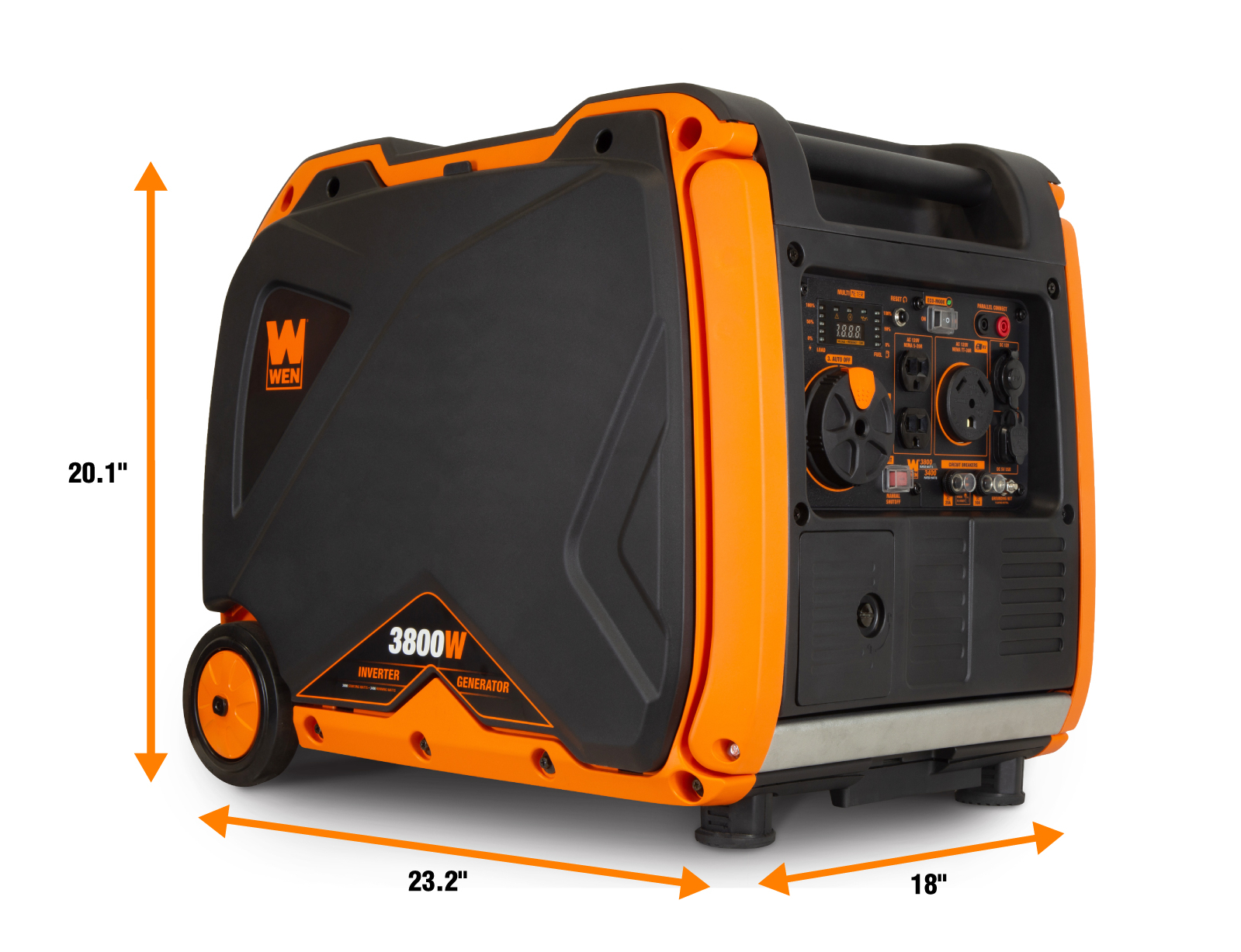
The WEN 56380i Super Quiet 3800-Watt Portable Inverter Generator is one of the best portable generators for power outages. This generator is capable of producing up to 3800 watts of power. It comes with a powerful 212cc 4-stroke OHV engine, as well as a fuel shut-off switch, which allows you to shut off the fuel supply when the generator is not in use. This generator also features an eco-mode switch, which reduces fuel consumption and noise levels, making it perfect for camping or tailgating trips. The WEN 56380i is designed to be lightweight and easy to transport, and it comes with a built-in carrying handle for portability.
The WEN 56380i also features a low oil shut-off system, which will automatically shut off the power when the oil level gets too low. This ensures that your generator is not damaged by running out of oil. The WEN 56380i also has a spark arrestor, which helps prevent the risk of forest fires. The generator also comes with a 3-year limited warranty.
Overall, the WEN 56380i Super Quiet 3800-Watt Portable Inverter Generator is an excellent choice for anyone looking for a reliable portable generator for power outages. It is lightweight and easy to transport, and it is also extremely quiet, making it perfect for camping or tailgating trips. The WEN 56380i also comes with a low oil shut-off system and a spark arrestor for added safety.
2. Champion 3400-Watt Dual Fuel RV Ready Portable Generator
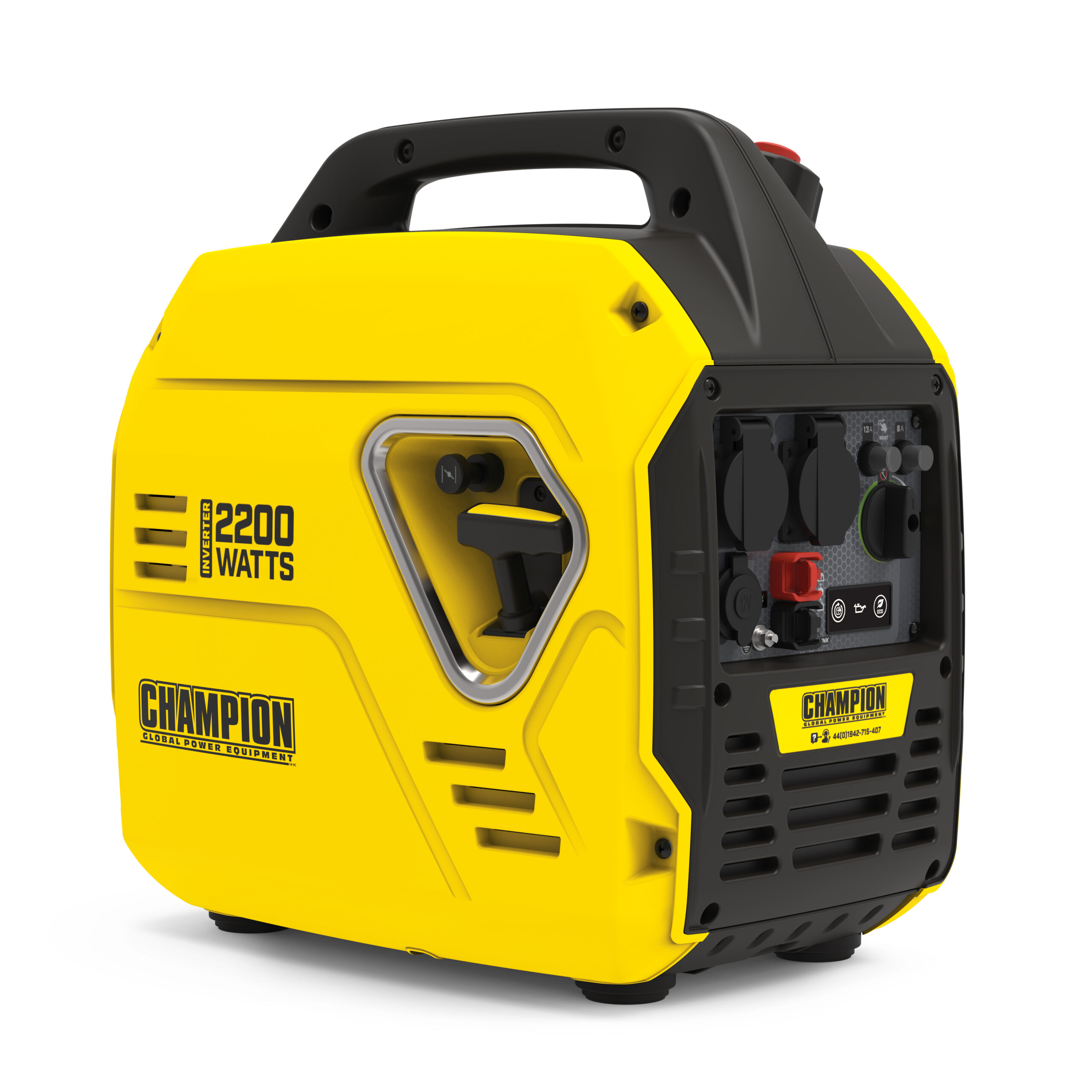
The Champion 3400-Watt Dual Fuel RV Ready Portable Generator is an ideal choice for those looking for a reliable, portable power source during a power outage. This generator is equipped with a dual fuel system, allowing it to run on either gasoline or propane, giving you the flexibility to choose the fuel that works best for your needs. It also features a remote start and electric start, making it easy to get up and running quickly. In addition, the generator has a 3400-watt surge and 3100-watt running power, making it powerful enough to handle most home appliances and power tools.
- Dual fuel system – runs on either gasoline or propane
- Remote and electric start for easy operation
- 3400-watt surge and 3100-watt running power
- RV Ready with a 120/240V, 30A RV outlet
- Low-oil shut off sensor
- Quiet operation at 68 dBA
This generator is made with RVers in mind, as it has a 120/240V, 30A RV outlet, which allows you to power your RV while camping. It also features a low-oil shut off sensor that will automatically shut down the generator if the oil gets too low. Finally, this generator is designed to operate quietly, at 68 dBA, providing you with a peaceful environment during a power outage.
Overall, the Champion 3400-Watt Dual Fuel RV Ready Portable Generator is an excellent choice for those looking for a reliable, portable power source. Its dual fuel system, remote and electric start, and RV Ready outlet make it an ideal option for powering your home or RV during a power outage.
3. Westinghouse WGen7500 Portable Generator
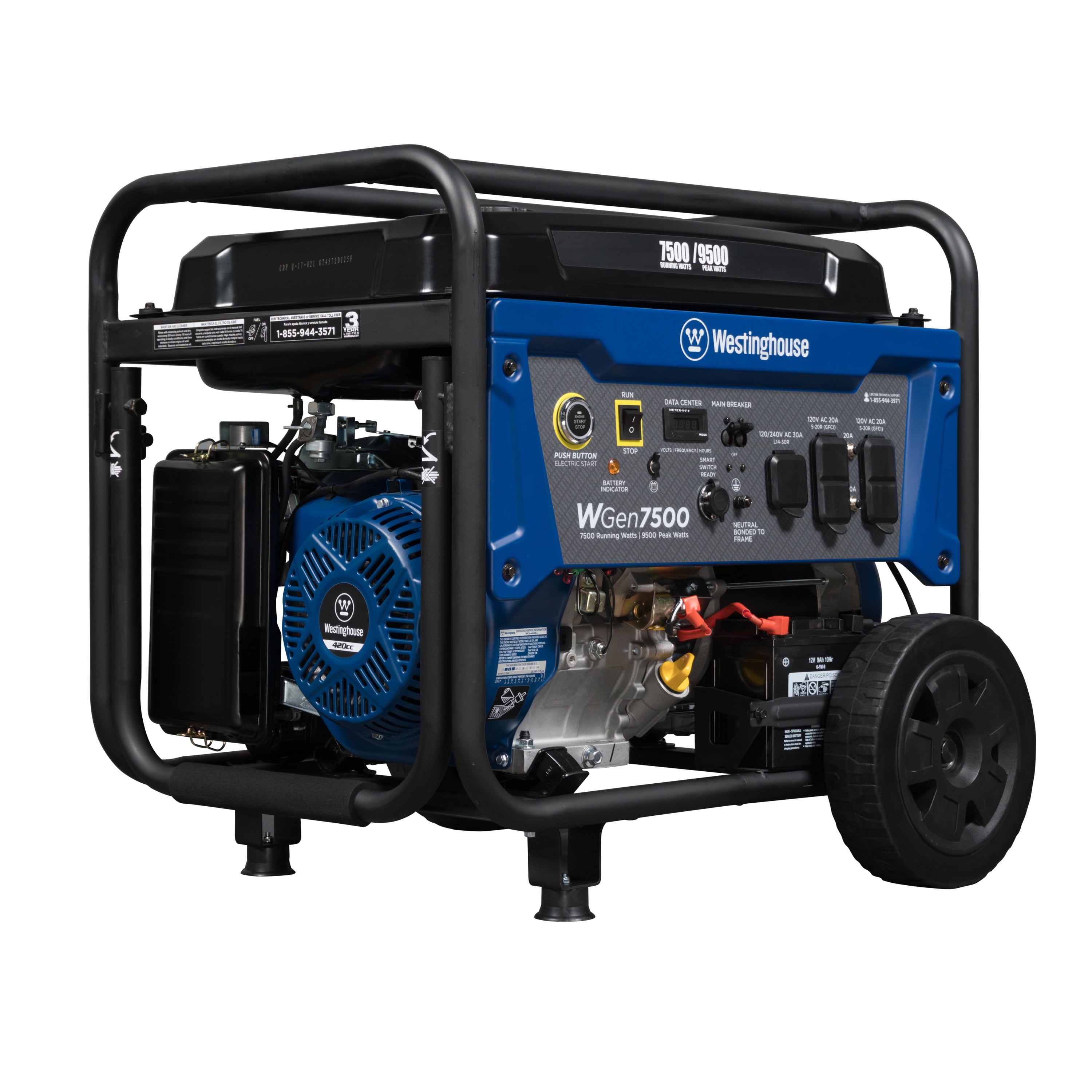
The Westinghouse WGen7500 Portable Generator is a great choice for those looking for reliable power during a power outage. This generator provides 9500 starting watts and 7500 running watts of power, enough to keep your whole house running during an emergency. It is also CARB-compliant, making it an eco-friendly choice.
The WGen7500 is designed with convenience in mind. It has an easy-to-read digital display, electric start, and a remote key fob for easy operation. The generator also features a low-oil shutdown feature to ensure your engine is protected from low oil levels. Additionally, it is equipped with a 5-20R 120V duplex outlet and a L14-30R 120/240V twist-lock outlet, so you can connect multiple appliances to the generator.
The WGen7500 also has a 3-year limited warranty from Westinghouse, so you can have peace of mind knowing that you’re covered for any potential problems. Overall, the Westinghouse WGen7500 Portable Generator is an excellent choice for those looking for a reliable and eco-friendly power source during a power outage.
4. Generac 7117 GP2200i 2200 Watt Portable Inverter Generator
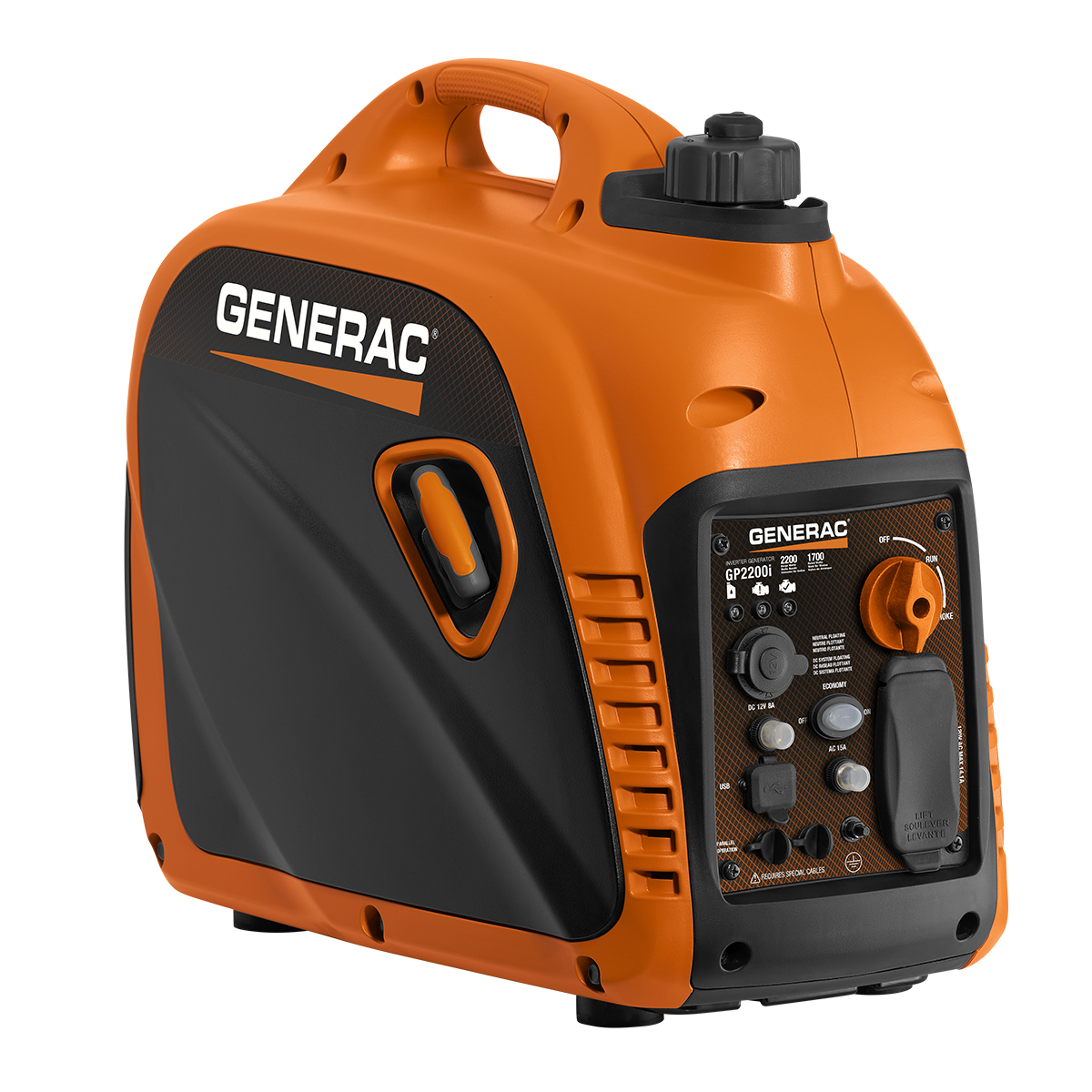
The Generac 7117 GP2200i 2200 Watt Portable Inverter Generator is one of the most reliable and efficient portable generators on the market today. This powerful machine is capable of producing a surge of up to 2200 watts and continuous power of 1700 watts, making it an ideal choice for your power outage needs. The Generac 7117 GP2200i is also incredibly light and easy to transport, weighing only 48 lbs., making it perfect for camping and other outdoor activities.
| Features | Specifications |
|---|---|
| Engine Type | Generac 79.7cc OHV |
| Surge Watts | 2200 Watts |
| Continuous Watts | 1700 Watts |
| Noise Level | 52 dB(A) |
| Fuel Tank Capacity | 1.06 Gallons |
| Run Time | 10 Hours @ 25% Load |
| Weight | 47.6 lbs. |
The Generac 7117 GP2200i generator is powered by a 79.7cc OHV engine and has a 1.06 gallon fuel tank that can run up to 10 hours at 25% load. It operates at a noise level of 52 dB(A), making it one of the quietest generators on the market. The generator also features an LCD digital display which allows you to monitor fuel level, power output, and other power data.
The Generac 7117 GP2200i is a great choice for those who need a reliable, efficient, and lightweight portable generator for power outages and other outdoor activities. It’s affordable price and impressive features make it a great value for your money.
Safety Tips for Portable Generators

When using a portable generator, it is important to practice safety and be aware of the potential hazards that can occur. Here are some safety tips to consider when using a portable generator:
- Always use a generator in a well-ventilated area and keep it at least 20 feet away from your home and other buildings.
- Never connect a portable generator directly to your home’s wiring. This can cause a deadly electric shock to you and your family.
- Turn off your generator and let it cool down before refueling. Fuel spilled on a hot engine can cause a fire or explosion.
- Never use a generator indoors or in any poorly ventilated areas. Generators produce carbon monoxide, which can be deadly.
- Read the owner’s manual before using the generator and follow all safety instructions.
- If you are using an extension cord, make sure it is rated for the wattage of the generator, and is the proper gauge for the length of the cord.
- Always use ground fault circuit interrupter (GFCI) outlets when connecting your generator to an electronic device.
By following these safety tips, you can ensure that your generator is being used in the safest way possible.
Cost Considerations
When selecting a portable generator for power outages, it is important to consider the cost of the generator. Here are some of the factors that may affect the cost of a portable generator:
- Size: Larger generators can cost more, so it is worth considering the size of the generator that you need for your specific power needs.
- Fuel type: Generators that run on gasoline or diesel can cost more than those that run on propane or natural gas.
- Features: Generators with additional features such as remote start, surge protection, and noise reduction may cost more than basic models.
- Brand: Different brands of generators may have different prices.
- Warranty: Extended warranties may cost more, but they can provide additional peace of mind.
It is important to compare the costs of different generators and to consider the features and benefits that they offer in order to find the best value.
Frequently Asked Questions
1. What features should I look for when choosing the best portable generator for power outages?
When it comes to choosing the best portable generator for power outages, there are a few features to consider. A quality portable generator should provide you with the necessary power to keep your essential appliances and devices running during a power outage. The following features should be taken into account when selecting the best portable generator for your needs:
- Power Output: Make sure the generator you select can provide enough power to meet your needs. Consider the wattage requirements of all the appliances and devices you will need to power during an outage.
- Fuel Efficiency: Look for a generator that offers the best fuel efficiency to ensure you get the most out of your fuel. This will help you save money and reduce trips to the gas station.
- Noise Level: Noise level is important, especially if you plan to use the generator in residential areas. Look for a generator with a low decibel rating.
- Portability: Many generators are portable, but some are easier to move and transport than others. Consider the weight, size, and handle design when selecting a generator.
- Durability: Look for a generator that is built to last. Check the materials used in construction and the overall design to ensure it can handle regular use.
- Price: Consider the cost of the generator, as well as any additional accessories you may need. Make sure you get the best value for your money.
2. What is the best generator for long-term power outages?
When it comes to long-term power outages, the best generator for the job is a standby generator. Standby generators are permanently installed and wired into the home’s electrical system. They are connected directly to a natural gas or propane line, allowing them to automatically turn on if the power goes out. They can provide reliable power for days or weeks, depending on the size of the generator.
Standby generators are more expensive than portable generators, but they are the most reliable option for long-term power outages. Here are some of the features to look for when shopping for a standby generator:
- Automatic start-up: Many standby generators will automatically turn on when the power goes out. This eliminates the need to manually start the generator in the event of an outage.
- Fuel source: Standby generators typically use natural gas or propane, both of which are relatively inexpensive and widely available.
- Size: Standby generators come in a variety of sizes, from small models that can power a few lights and appliances to large models that can power a whole house.
- Maintenance: Most standby generators require regular maintenance, such as oil and filter changes, to keep them running properly.
- Noise level: Standby generators tend to be much quieter than portable generators.
If you are looking for reliable power during long-term power outages, a standby generator is the best option. It is more expensive than a portable generator, but the peace of mind and reliability it provides is worth the investment.
3. What type of generator is best for home power outages?
When it comes to home power outages, the best type of generator to have is one that provides sufficient power to run your home’s essential appliances and lights. Here are the main types of generators that are suitable for home power outages:
- Inverter Generators: Inverter generators are the most popular type of generator for homes and can provide reliable, clean power for running essential appliances. They are quieter, more fuel efficient and generally more affordable than other types of generators.
- Standby Generators: Standby generators are permanently installed and automatically switch on in the event of a power outage. They provide the most reliable and comprehensive solution for a home power outage, and are generally more expensive than inverter generators.
- Portable Generators: Portable generators are a cost-effective and convenient option for providing power during a power outage. They are easy to move around and can be used to power essential appliances. However, they are noisier and less efficient than inverter generators.
4. What is the difference between a portable generator and an inverter generator for power outages?
When looking for a generator to help you in a power outage, you might consider both a portable generator and an inverter generator. Both types of generators can provide a reliable source of power in an emergency situation, but they function differently. Here are the key differences between them:
- Output: Portable generators offer higher output and can typically handle larger appliances such as refrigerators and air conditioners. Inverter generators, on the other hand, have a lower output and are better suited for powering smaller devices such as laptops or cell phones.
- Mobility: Portable generators are typically larger and heavier, making them more difficult to move around. Inverter generators tend to be lighter and more portable, allowing for greater flexibility in terms of placement.
- Noise: Portable generators are usually louder than inverter generators and may not be suitable for use in residential areas. Inverter generators are quieter and can be used in more sensitive areas.
- Fuel Efficiency: Portable generators use more fuel than inverter generators and may not be suitable for long-term or frequent use. Inverter generators are more fuel efficient and can be used for extended periods without needing to refuel.
When choosing a generator for a power outage, it is important to consider your particular needs and preferences. Portable generators offer more power and flexibility, while inverter generators are quieter and more fuel efficient.
5. What safety considerations should I take into account when using a portable generator for power outages?
When using a portable generator for power outages, there are several safety considerations to take into account.
- Be sure to read the instructions and follow all safety guidelines provided by the manufacturer.
- Do not use the generator indoors or in any enclosed space, as it produces dangerous carbon monoxide gas.
- Place the generator in a dry, well-ventilated area, away from any combustible materials.
- Keep children and animals away from the generator at all times.
- Use a heavy-duty extension cord that is rated and rated for the amperage of the generator.
- Be sure to turn off the generator before refueling.
Conclusion
When it comes to choosing a portable generator for power outages, there are several factors to consider. It’s important to think about your specific needs and the size and power of the generator you’ll need. You should also consider the type of fuel the generator uses and how much noise it will make. Additionally, it’s important to consider the cost and the maintenance requirements.
By doing your research and considering your own needs, you can find the best portable generator for your power outages. Make sure to read reviews, guides, and how-tos so you can find the perfect generator for your needs. With the right generator, you can be sure that your home will have reliable power during an outage.
References
- Krull, M. (2020). The Best Portable Generators for 2020. Consumer Reports.
- Mueller, B. (2020). Portable Generator Buying Guide. The Home Depot.
- US Department of Energy. (2020). Portable Generators. Energy.gov.
- Generator Guru. (2020). Generator Safety Tips. GeneratorGuru.com.


